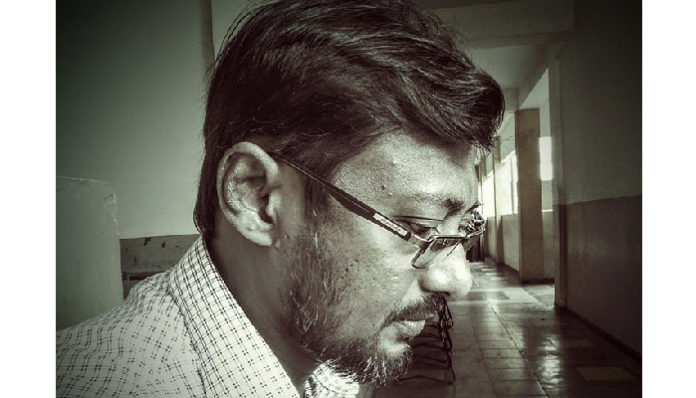The Supreme Court of Sri Lanka has ruled the imprisonment of a Muslim writer as unlawful and ordered the government to pay him a compensation of one million LKR.
A bench of three judges ruled the fundamental rights of Ramzy Razik was violated by the state by misusing an Act aimed at promoting unity.
Ramzy Razik was arrested by the Criminal Investigation Department (CID) of the Sri Lanka Police on the 9th of April 2020 for a posting on Facebook published earlier that month suggesting an “ideological jihad” (ideological struggle) with a pen and keyboard to put an end to racism that oppresses the Muslim community in Sri Lanka.
In another post two days later, Razik expressed fears about the numerous death threats he received following his post and said his post about the oppression of the Muslim community was ‘misinterpreted’ accusing him of spreading racist ideas.
Those who allegedly threatened him apparently called for his arrest.
His post on Facebook was during the Covid-19 pandemic when the Gotabaya Rajapaksha regime ordered the bodies of Muslims who died due to the virus attack to be cremated which is against the Muslim belief of burying the dead.
He was detained for over five months before being granted bail.
In their ruling the Supreme Court Judges observed section 3 of the International Covenant on Civil and Political Rights (ICCPR) should not be understood as criminalizing blasphemy.
While ruling the arrest and detention of Ramzy as illegal and ordering compensation, the judges ruled the Chief Inspector of the CID inspector B.M.A.S.K. Senaratne, and former CID director W. Thilakaratne to pay compensation from their personal funds.
The judges in their judgments have strongly emphasized the importance of human rights which includes freedom of speech and expression.
Writing the judgment on behalf of the bench comprising of Justices B.P. Aluwihare and Janak De Siva, Justice Yasantha Kodagoda noted:
“I see nothing inflammatory or obnoxious to the law and in particular any attempt to incite the feelings of either the Muslim community or any other community or incite others to perpetrate violence, particularly because the term ‘Jihad’ had been prefaced by the term ‘ideological’ coupled with the weapons the virtual petitioner called upon others to use, namely the ‘pen and the keyboard”.
In his order which was agreed by his brother judges, Justice Yasantha Kodagoda came down heavily on the actions of government servants and the responsibility of the state.
“The responsibility of the state arises out of the fact that the state shall be responsible for the actions of all the actions of its servants committed using the colour of their office unless it is established that the state had taken all necessary measures to prevent the infringement in issue”.
The unanimous judgment warned police officers to exercise great caution while arresting persons and subjecting them to criminal justice measures.
“Police officers must bear in mind the fact that arrest, initiation of criminal proceedings and causing a suspect to be placed in remand custody are by themselves criminal justice measures which have a penal character and a direct bearing on the liberty of persons. The adoption and enforcement of such measures in a manner that infringes the fundamental rights of persons can have a chilling effect on other persons too, who wish to enjoy the exercise of their inalienable fundamental rights. Therefore, such criminal justice measures must be carried out with due diligence, independently, objectively, with great caution, and strictly in the manner provided by law”.
Earlier the Colombo High Court while granting him bail after 161 days being incarcerated under the ICCPR strongly observed that the laws of a country are designed to protect the right of individuals to freedom of expression.
Ramzy Razik was arrested from his home in Katugastoda, Plgasdeniya on the 9th of April 2020.
His arrest was strongly condemned by Human Rights organizations within and outside Sri Lanka.
The Human Rights Commission of Sri Lanka also expressed its disapproval of his detention saying the police acted “without proper legal clarity and in a discriminatory manner.
Sri Lanka’s misuse of the ICCPR Act has come under severe criticism from international bodies including the UN on numerous occasions.


